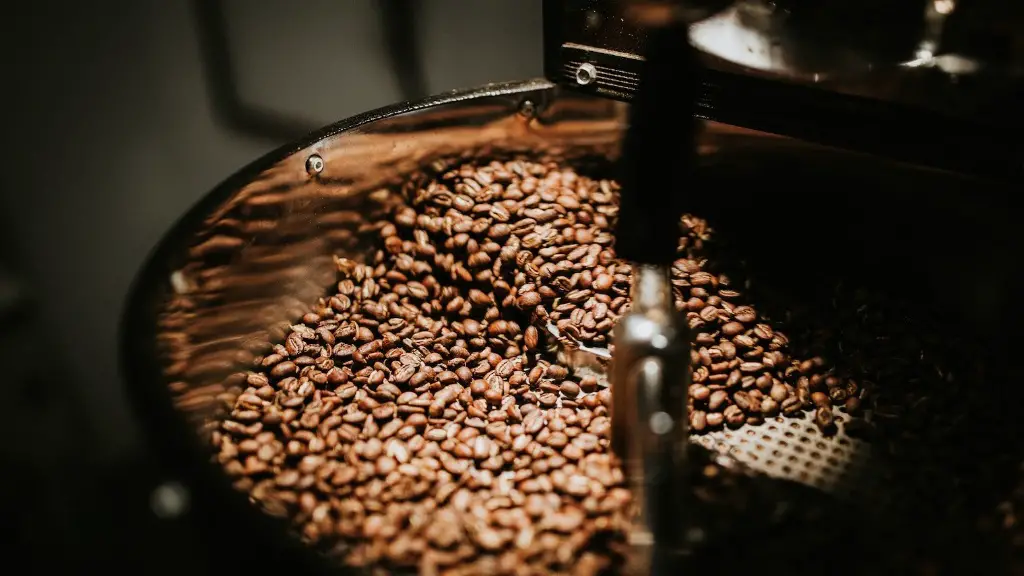Coffee is one of the most widely consumed beverages in the world. The average person drinks coffee on a daily basis and it is a part of many people’s morning routine. But how much coffee does the average person drink?
Caffeine consumption varies from person to person, but studies have shown that the average adult drinks three to five cups of coffee per day. This amount can vary depending on lifestyle and individual preferences. The amount of coffee a person drinks can also be affected by factors such as age, gender, and geographical location. For instance, people living in countries with higher consumption rates tend to consume more coffee than those living in countries with lower consumption rates.
It is important for individuals to monitor their caffeine intake as too much caffeine can lead to health issues such as insomnia, anxiety, and heart palpitations. Therefore, it is best for individuals to find an optimal balance between enjoying their daily cup of joe while still staying within the recommended daily caffeine intake limits.
Effects of Excessive Coffee Consumption
Coffee is a widely enjoyed beverage, but too much of it can cause adverse health effects. On average, Americans drink about 3.2 cups of coffee per day, although this amount can vary widely depending on age and lifestyle. Consuming more than four cups of coffee per day can lead to restlessness, insomnia, headaches, and other health issues. It can also increase heart rate and cause anxiety and jitteriness. Long-term excessive coffee consumption can lead to a dependency on the beverage, as well as increased risk for developing high blood pressure and heart disease. Caffeine overdose is even possible in severe cases.
It’s important to remember that everyone’s body is different when it comes to caffeine sensitivity. Some people may be able to handle more than four cups of coffee a day without experiencing any negative effects. It’s best to start with one cup and gradually increase intake if desired. Additionally, those who are pregnant or have existing medical conditions should speak with their doctor before consuming large quantities of caffeine.
Factors Influencing Coffee Consumption
Coffee consumption is influenced by numerous factors, including lifestyle, genetics, and health concerns. Regular coffee drinkers tend to have higher levels of energy, alertness, and productivity than non-drinkers. Caffeine has been shown to increase focus and alertness and even help reduce fatigue. Genetics also play a role in determining how much coffee the average person drinks. People with a genetic variant in the CYP1A2 gene metabolize caffeine at a slower rate than those without it, meaning they may be more sensitive to the effects of caffeine or require more caffeine to achieve the same result. Lastly, health concerns can affect how much coffee an individual consumes. People with conditions such as anxiety or insomnia may wish to avoid caffeine altogether or limit their intake to prevent worsening symptoms. On average, most people consume two to three cups of coffee per day.
For those who do drink coffee regularly, it is important to be aware of the potential risks associated with excessive consumption. High levels of caffeine can cause headaches, restlessness, irritability, and insomnia in some people. It can also interact negatively with certain medications and should be consumed in moderation by anyone taking prescription drugs.
Health Benefits of Drinking Coffee
Coffee is one of the most widely consumed beverages in the world. It has been linked to several health benefits, including improved brain function, a lower risk of certain cancers, and improved physical performance. Studies have also shown that drinking moderate amounts of coffee can help reduce the risk of developing Type 2 diabetes and heart disease. On average, people consume about two cups of coffee per day, although some may drink more or less depending on their individual preferences. Drinking coffee in moderation can also help to boost your mood and energy levels.
Coffee is rich in antioxidants which can help to protect cells from damage caused by free radicals. Studies have shown that drinking coffee may reduce inflammation throughout the body which can reduce pain and swelling associated with certain diseases. Caffeine has also been linked to improved cognitive performance and alertness, making it a popular choice among students and professionals alike.
Overall, drinking coffee in moderation is associated with a number of health benefits including improved concentration, enhanced physical performance, reduced risk for certain diseases, and mood-boosting effects. While it’s important to note that too much caffeine can be detrimental to health, moderate amounts are generally considered safe for most people.
Alternatives to Drinking Coffee
The average person drinks several cups of coffee a day, so it’s understandable to want to find alternatives. For those looking for a healthier or more interesting beverage, there are plenty of options. Tea has been used for centuries and comes in a variety of flavors and types. Green tea is especially popular for its health benefits and can be brewed with different herbs or spices as desired. Chai is another popular tea choice, often served with milk or cream. If you’re looking for something cold, smoothies are a great option and can be made with fresh fruits, vegetables, and juices. For something warm, hot chocolate is always a classic comfort drink that can be spiced up with cinnamon or nutmeg for an extra kick. Finally, there are many herbal teas out there that provide both flavor and health benefits. There are endless possibilities when it comes to finding alternative drinks to coffee. With so many options available, it’s easy to find something that fits your taste!
Recommended Cups of Coffee Per Day
The average person drinks approximately three to four cups of coffee per day. This amount is generally considered safe and may actually provide certain health benefits. Coffee consumption can help improve alertness, energy levels, and concentration. It may also reduce the risk of certain diseases such as type 2 diabetes and Alzheimer’s. However, it is important to keep in mind that too much caffeine can lead to adverse effects, including anxiety, headaches, and digestive issues. Therefore, it is best to keep your coffee consumption within the recommended three to four cups per day.
Types of Coffees and their Caffeine Content
Coffee is widely enjoyed around the world due to its energizing properties and delicious flavor. Different types of coffee come with varying degrees of caffeine content, allowing for personal preference when it comes to how much caffeine is consumed in a single cup. The two most popular types of coffee are espresso and drip, with the former offering more caffeine per ounce than the latter. Espresso shots are usually 1-2 ounces and contain anywhere between 64-100 mg of caffeine, while drip coffee is typically 8 ounces and contains 95-200 mg of caffeine.
The amount of coffee that an individual drinks can depend on a variety of factors such as lifestyle, activity level, or health condition. Generally speaking, the average person drinks 2-3 cups per day, with each cup containing between 95-200 mg of caffeine. For those looking for a lower dose of caffeine, decaf coffee is available which contains only 3-12 mg per 8 ounce cup. No matter what type you choose, always be sure to drink responsibly.
To Sum it All Up
It is difficult to determine exactly how much coffee the average person drinks as it is largely dependent on individual habits and preferences. However, studies have shown that the average American adult consumes around 3 cups of coffee per day. Whether this amount of coffee is beneficial or detrimental depends on the individual, but most health experts recommend limiting intake to 4-5 cups per day. When consumed in moderation, coffee can be a great source of energy and alertness.



